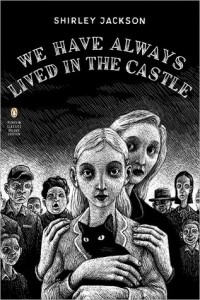 Title: Frankenstein in Baghdad (Goodreads)
Title: Frankenstein in Baghdad (Goodreads)
Author: Ahmed Saadawi
Translator: Jonathan Wright
Published: Oneworld Publications, 2018
Pages: 272
Genres: Literary Fiction, Horror
My Copy: Paperback
Buy: Amazon, Book Depository, Kindle, Wordery (or visit your local Indie bookstore)
Shortlisted for the Man Booker International Prize 2018
There has been a lot of buzz around Frankenstein in Baghdad, even before being spotlighted on the Man Booker International Prize longlist and now shortlist. Ahmed Saadawi’s novel is an intense portrayal of Iraqi life in post invasion Baghdad. The violence never stopped after the American invasion and junk dealer Hadi collects body parts lying on the streets and patchworks them together. However when a wandering spirit of a guard who was a victim of a car-bomb explosion finds the corpse, he is quick to possess it, giving birth to a monster known as Whatsitsname, who sets out to seek vengeance for all the victims that make up this monster.
Two hundred years ago Mary Shelley published Frankenstein and Ahmed Saadawi’s nod to this classic serves as celebration of the genre Shelley has created. I am often sceptical about a remake or reimagining of a classic, especially when that book is so close to my heart. However I was drawn to Frankenstein in Baghdad, but that might be my love for books in translation. There are elements of this novel that almost mirror Frankenstein but with a more modern spin. Take for example the opening chapter, rather than Captain Robert Walton writing to his sister to setup the story, we have an activity report from the Tracking and Pursuit department. Letter writing is a dying art form but a military report perfectly modernised the novel’s setup.
The war on Iraq is a topic that is often talked about in western society. A war that President George W Bush claimed was successful in the Mission Accomplished speech held on the USS Abraham Lincoln in 2003. Yet it was not until the end of 2011 when all U.S. troops were officially withdrawn. I say ‘officially withdrawn’ but the U.S. have still had troops in Iraq, most notably the American-led intervention of the Islamic State of Iraq and the Levant in 2014 and Operation Conquest in Mosul in 2016. The war on Iraq lead to the Iraqi Civil War which led to America’s involvement again in what they call the war on terror. I do not know much about the conflicts in Iraq apart from the information shared on the news.
I cannot expect the news to portray an unbiased account of everything happening in Iraq so it was nice to learn a little more with Frankenstein in Baghdad. While this is a surreal and fantastical novel, the book did confirm what I have always suspected. That war and violence do not lead to peace. Everything I knew about the war on Iraq had always made it out to be that America is spreading democracy and peace to the Middle East. However all the evidence points to a creation of a new monster, one that wreaks havoc on Baghdad, one that used the power vacuum and hatred to gain a foothold. Not Whatsitsname, but the Islamic State of Iraq and the Levant (ISIL), which is also known as the Islamic State of Iraq and Syria (ISIS).
Frankenstein in Baghdad transforms from a novel of pure horror based on the actual horrors faced every day. However this novel is not as depressing as you might expect. Ahmed Saadawi has managed to convey so much of the world he lives in without scaring the reader away. Frankenstein in Baghdad reads more like a black comedy, a satire of the current state of the Middle East. Taking the themes found in Frankenstein of the way society turned a creature into a monster and turning it back onto the world showing us all the monster that has been created.
While this may not be a direct connection, it is a connection I found in the novel. While Whatsitsname is possessed by righteous fury, going about slaughtering those who have turned Baghdad into a slaughterhouse, this might work for the real life Frankenstein. Although we could argue that they are bound by the same motivation. I will leave any political opinions up to the reader to interpret. This is a stunning novel that I have spent a lot of time thinking about. There is something about Ahmed Saadawi’s story that makes this a must read. Whether his attentions were to compare Frankenstein with that of ISIS is entirely up to the reader. Novels are always subjective, this is the connections I made. I am left with anger towards the U.S. treatment of Iraq and I never had a high opinion in the first place. Without getting too political I want to leave you with one question to think about, should any country force their own values on a culture that is vastly different from their own?
This review was originally published in the literary journal The Literati

 Title: Things We Lost in the Fire (
Title: Things We Lost in the Fire ( Title: We Have Always Lived in the Castle (
Title: We Have Always Lived in the Castle ( Title: The Legend of Sleepy Hollow (
Title: The Legend of Sleepy Hollow ( Title: The Devil's Detective (
Title: The Devil's Detective ( Title: In the Miso Soup (
Title: In the Miso Soup ( Title: Let the Right One In (
Title: Let the Right One In ( Title: Acceptance (
Title: Acceptance ( Title: Authority (
Title: Authority ( Title: Annihilation (
Title: Annihilation (